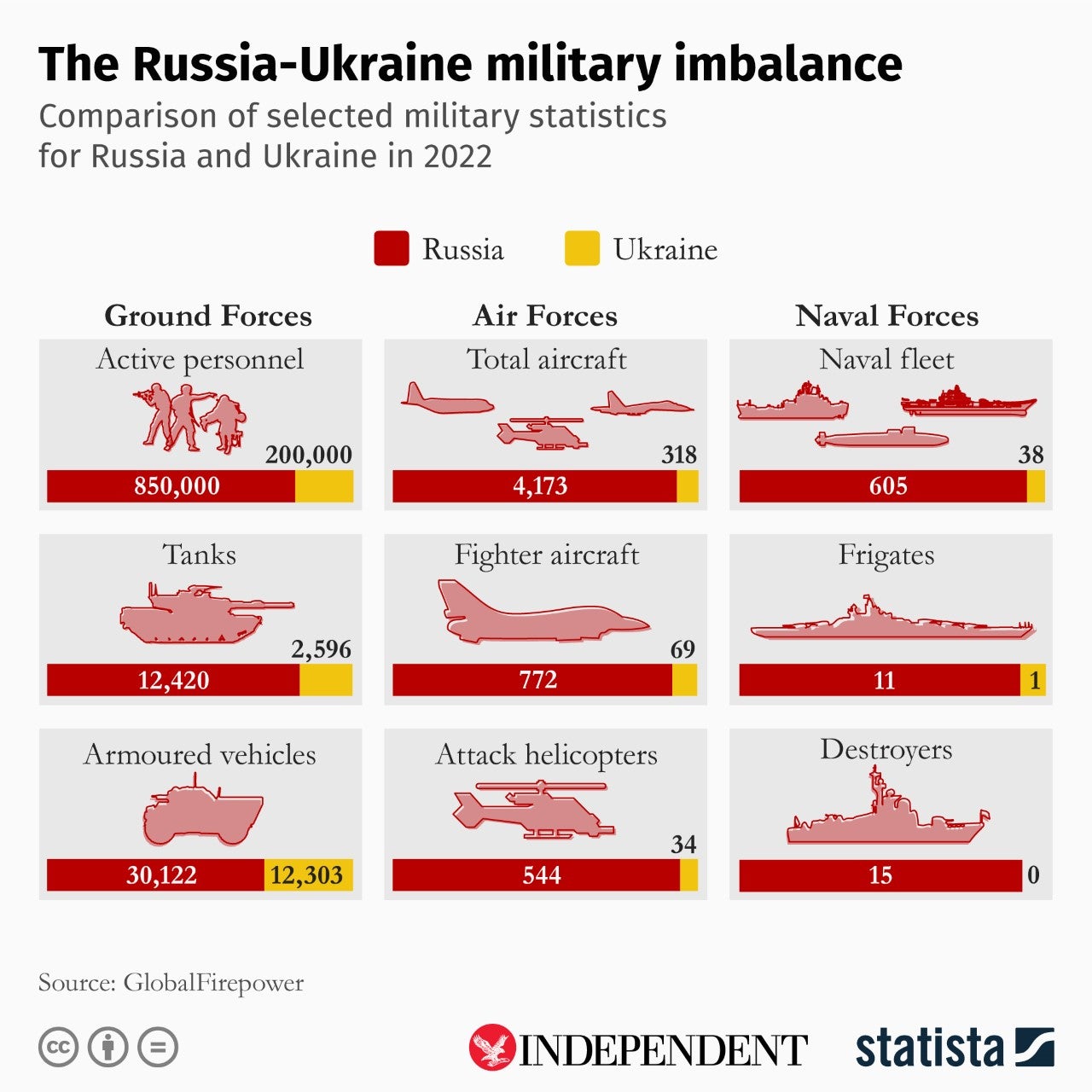Ukraine: Intelligence on Russian troop build-up ‘not encouraging’, says Boris Johnson
Some signs of openness in diplomatic talks, but Russia prepared to go ‘at any moment’, says PM
The latest intelligence on the build-up of Russian troops near the border with Ukraine is “not encouraging”, Boris Johnson has said following a meeting of the government’s emergency Cobra committee.
The prime minister said that there were some hopeful signs of Moscow being ready to continue diplomatic conversations.
But he made clear he was sceptical about suggestions that president Vladimir Putin may be pulling back from the brink of war, pointing to evidence of field hospitals being built in Belarus near the border with Ukraine and army formations being brought closer to the frontier.
The construction of field hospitals - used to provide treatment for troops injured in battle - can only be “construed as preparation for an invasion”, the prime minister said.
And he added: “We think they have a huge preparation ready to go virtually at any moment.”
Despite Russian claims about troop withdrawals, Mr Johnson said intelligence suggested “you have got more battalion tactical groups being brought closer to the border”.
“So, mixed signals, I think, at the moment,” Mr Johnson said.
Ukraine’s foreign minister Dmytro Kuleba, who was today due to speak by phone with foreign secretary Liz Truss, made clear that Kyiv shares the PM’s scepticism over Russian statements about scaling down its military presence.
“On Russian statements regarding withdrawal of some forces from the Ukrainian border, we in Ukraine have a rule,” said Mr Kuleba.
“We don’t believe what we hear, we believe what we see. If a real withdrawal follows these statements, we will believe in the beginning of a real de-escalation.”
Asked about suggestions from US intelligence that an invasion could occur in the early hours of Wednesday morning, Mr Johnson said Putin had “a lot of options” available.
“130,000 troops or more, a huge number of battalions – more than 90 battalions, tactical groups – and they are stationed around the Ukrainian border,” said the PM.
“Everyone can see what the potential routes in are – down to the south from Belarus, encircling the Ukrainian army in the east around the enclave in Donbas or even coming up from the south from the sea, taking Odessa, Kherson.
“That’s the kind of thing they (could do). There a lot of options that they have.”

He called for “a programme of de-escalation” by Moscow.
“That means withdrawing the battalion tactical groups away from a potential theatre of conflict, not constructing field hospitals on the border with Belarus and between Belarus and Ukraine,” said the PM.
“A sense that things are being scaled back, scaled down, that the threat is over and that a conversation and negotiation is beginning.”
Mr Johnson said London believes there is an “avenue for diplomacy” following positive signs in conversations between foreign minister Sergey Lavrov and Mr Putin’s foreign policy adviser Yuri Ushakov and their counterparts in the West.
“If that’s correct, then let’s build on that,” said Mr Johnson.
Mr Putin has publicly denied intending to invade Ukraine, but says he regards it as an act of aggression for Nato to hold open the prospect of membership for the country, once an integral part of the Soviet Union.
The PM said it had been decided at today’s Cobra meeting to keep the UK embassy in Ukrainian capital Kyiv open.
Boris Johnson said the UK’s decision to keep its embassy open in Kyiv was “very difficult”, but the move is an “important symbol”.
“This is a very difficult decision that we’ve just taken, and that is to keep our embassy going in Kyiv, and to continue to ask Melinda Simmons, our fantastic ambassador, to do what she’s doing,” he said.
“Now, that’s a balanced decision. We have to face the fact that there is a risk. We’ll keep it under constant review.
“One of the things we want to do is to show the UK’s continued support for Ukraine, for stability in Ukraine, and I believe that keeping our embassy going for as long as possible is an important symbol.”
Join our commenting forum
Join thought-provoking conversations, follow other Independent readers and see their replies
Comments
Bookmark popover
Removed from bookmarks